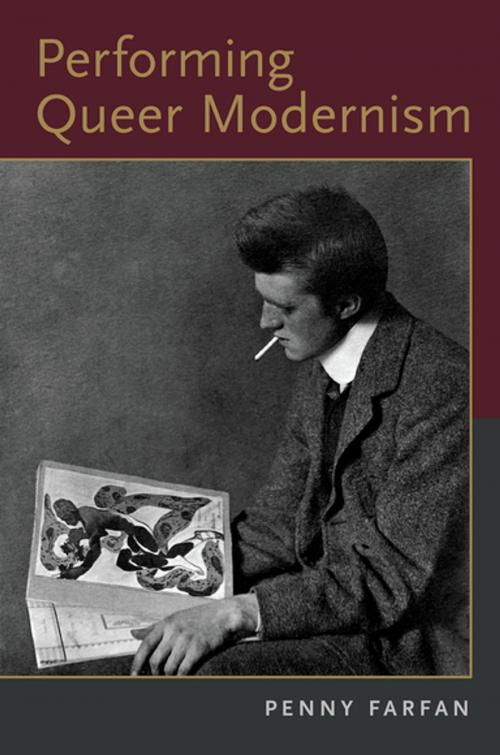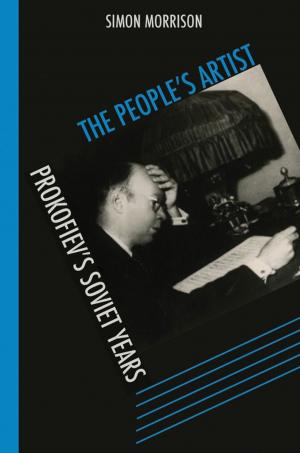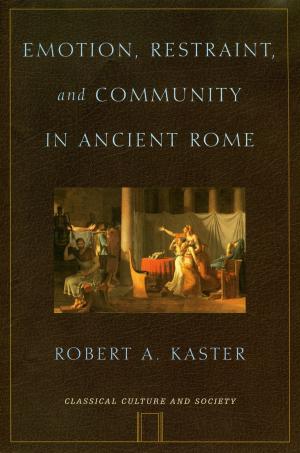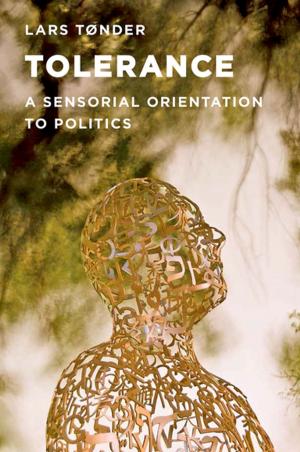Performing Queer Modernism
Nonfiction, Entertainment, Music, Pop & Rock, Dance, Music Styles, Performing Arts| Author: | Penny Farfan | ISBN: | 9780190679729 |
| Publisher: | Oxford University Press | Publication: | July 12, 2017 |
| Imprint: | Oxford University Press | Language: | English |
| Author: | Penny Farfan |
| ISBN: | 9780190679729 |
| Publisher: | Oxford University Press |
| Publication: | July 12, 2017 |
| Imprint: | Oxford University Press |
| Language: | English |
Focusing on some of the best-known and most visible stage plays and dance performances of the late nineteenth- and early twentieth-centuries, Penny Farfan's interdisciplinary study demonstrates that queer performance was integral to and productive of modernism, that queer modernist performance played a key role in the historical emergence of modern sexual identities, and that it anticipated, and was in a sense foundational to, the insights of contemporary queer modernist studies. Chapters on works from Vaslav Nijinsky's Afternoon of a Faun to Noël Coward's Private Lives highlight manifestations of and suggest ways of reading queer modernist performance. Together, these case studies clarify aspects of both the queer and the modernist, and how their co-productive intersection was articulated in and through performance on the late-nineteenth- and early-twentieth-century stage. Performing Queer Modernism thus contributes to an expanded understanding of modernism across a range of performance genres, the central role of performance within modernism more generally, and the integral relation between performance history and the history of sexuality. It also contributes to the ongoing transformation of the field of modernist studies, in which drama and performance remain under-represented, and to revisionist historiographies that approach modernist performance through feminist and queer critical perspectives and interdisciplinary frameworks and that consider how formally innovative as well as more conventional works collectively engaged with modernity, at once reflecting and contributing to historical change in the domains of gender and sexuality.
Focusing on some of the best-known and most visible stage plays and dance performances of the late nineteenth- and early twentieth-centuries, Penny Farfan's interdisciplinary study demonstrates that queer performance was integral to and productive of modernism, that queer modernist performance played a key role in the historical emergence of modern sexual identities, and that it anticipated, and was in a sense foundational to, the insights of contemporary queer modernist studies. Chapters on works from Vaslav Nijinsky's Afternoon of a Faun to Noël Coward's Private Lives highlight manifestations of and suggest ways of reading queer modernist performance. Together, these case studies clarify aspects of both the queer and the modernist, and how their co-productive intersection was articulated in and through performance on the late-nineteenth- and early-twentieth-century stage. Performing Queer Modernism thus contributes to an expanded understanding of modernism across a range of performance genres, the central role of performance within modernism more generally, and the integral relation between performance history and the history of sexuality. It also contributes to the ongoing transformation of the field of modernist studies, in which drama and performance remain under-represented, and to revisionist historiographies that approach modernist performance through feminist and queer critical perspectives and interdisciplinary frameworks and that consider how formally innovative as well as more conventional works collectively engaged with modernity, at once reflecting and contributing to historical change in the domains of gender and sexuality.















